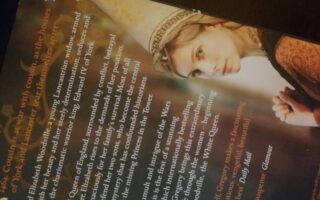The Red Queen by Philippa Gregory is a retelling of the events in The Lady of the Rivers and The White Queen. It comes from a drastically different point of view. Margaret Beaufort brings forth the meaning behind the scenes of the York success. She shows that the Lancaster house was waiting in the shadow to regain power.
Margaret Beaufort, the Rivers’ declared enemy and the constant conspirator during the York reign, tells this story. She is the heiress to the Lancaster House. Married at the age of 12, she has her son Henry at 14. He becomes the sole purpose of her life. All her devotion and work is centered on making him the next king of England.

She plots and creates a network of conspiracies throughout the country. Margaret goes through two more loveless marriages only to achieve the Lancaster rule. Her determination to destroy the Rivers family delays her success. In the end she realizes there can be no ruling without them.
Forced by events, she agrees to her son marrying a York-Rivers princess because it is the only means of keeping the peace.
There is no end to the intrigues at court or in private life
The novel is full of deadly plots. The two rivals houses, York and Lancaster, change precedence constantly in a cousins war that seems never-ending. Only more deaths serve to bring peace closer, as the heirs to the throne are eliminated.
From a very young age Margaret Beaufort is very devoted to religion. She has the `saints knees’, from many hours spent praying. She has several visions and believes she is guided by Joan of Arc. Unfortunately she strays too far and turns religion into what she needs it to be. Thus, she is guided relentlessly by ambition.

Somehow all her prayers point out that she needs to do anything to eliminate the House of York. She even goes as far as ordering the little York princes’ death in the Tower of London. She does not love any of her husbands, but dedicates herself to her son’s cause.
At one point she admits that if he hadn’t been an heir to the throne they would probably have long been separated. This shows how deeply she is moved by power. It is impossible for her to take into account other people’s suffering if they are in her way.
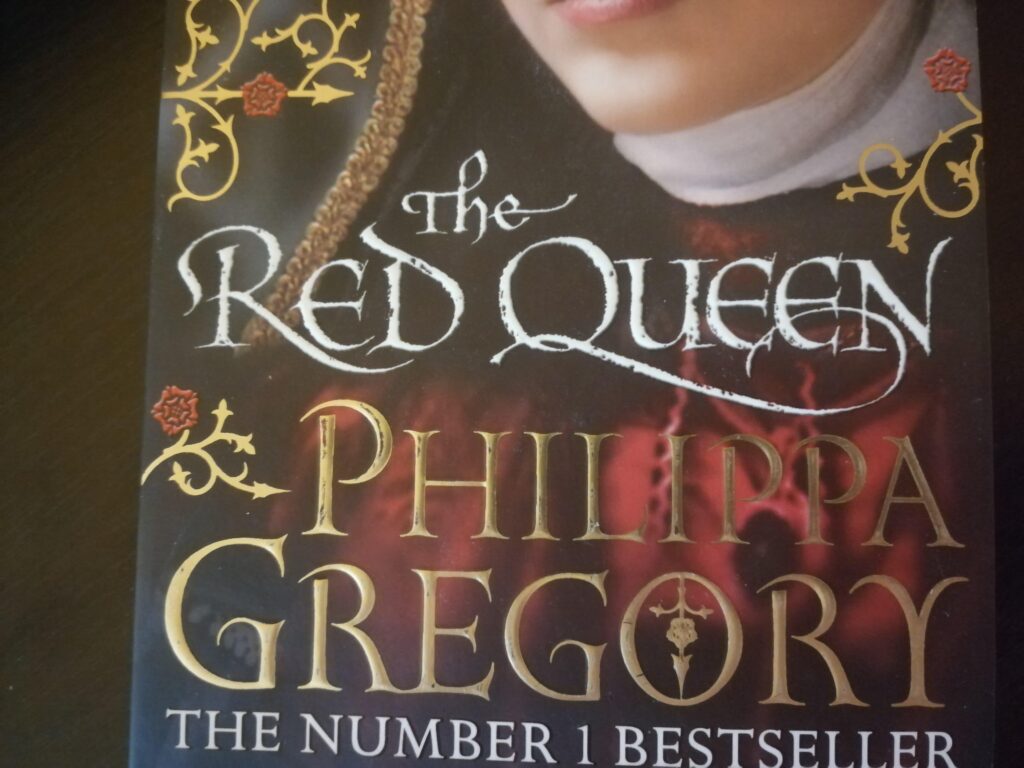
Her loneliness, stubborn devotion and often-misguided religion turn Margaret Beaufort into an object of compassion
However, the ease with which she would see other people killed stops it and turns her into an object of scorn. She is completely isolated from her husbands. Margaret does not have any friend and her family only uses her strategically for more heirs.
It is not hard to imagine how such conditions gave her the wish to revenge herself on anyone that is successful. The Queen Elizabeth of York and her daughter become her targets. Beauty, fine clothes and happiness attract her enmity. She cannot accept that she will not be the first in the kingdom.
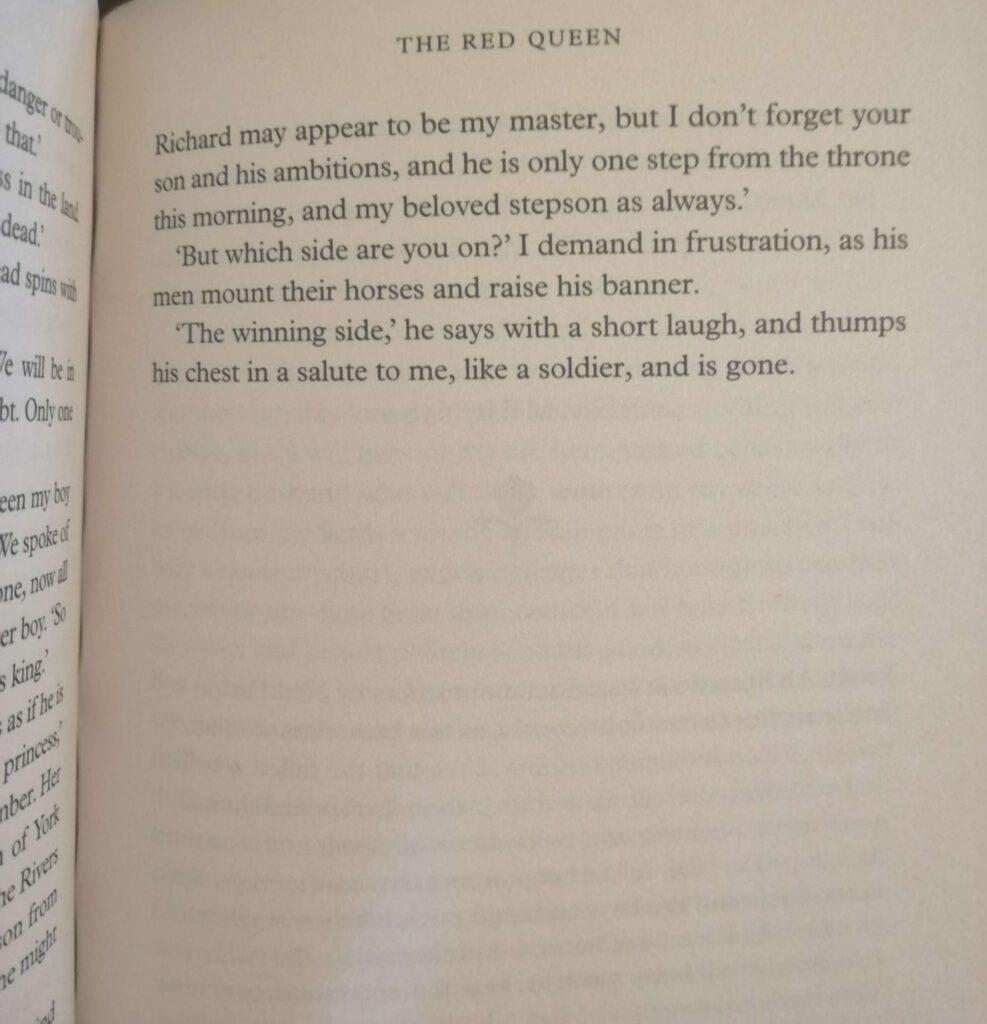
Arrogance, conceit and the ill-treatment of others define her in every chapter, as she creates a wall that drives everyone away. Ambition with no limit brings forth destruction and death. It seems that even the success for Lancaster at the end of the book will spark more conflicts and cause new wars.
The wish for higher status, the desire to be in the royal court and to be greeted as Margaret R (Margaret Regina) fuel the main character’s actions. At some point it doesn’t look like she cares about her son that much except as the way to get closer to the throne.
Unable to raise Henry herself as he was put in the care of different guardians, unhappy in the marriages chosen for her, Margaret Beaufort throws spite and negative thoughts into every action. She sees opportunities to harm her rivals and in the end succeeds by treason of the king by her own husband. Unmoved by honor, she takes every possible advantage against her perceived enemies. The only person she ever allows herself to love form a distance is Jasper Tudor, her brother-in-law.
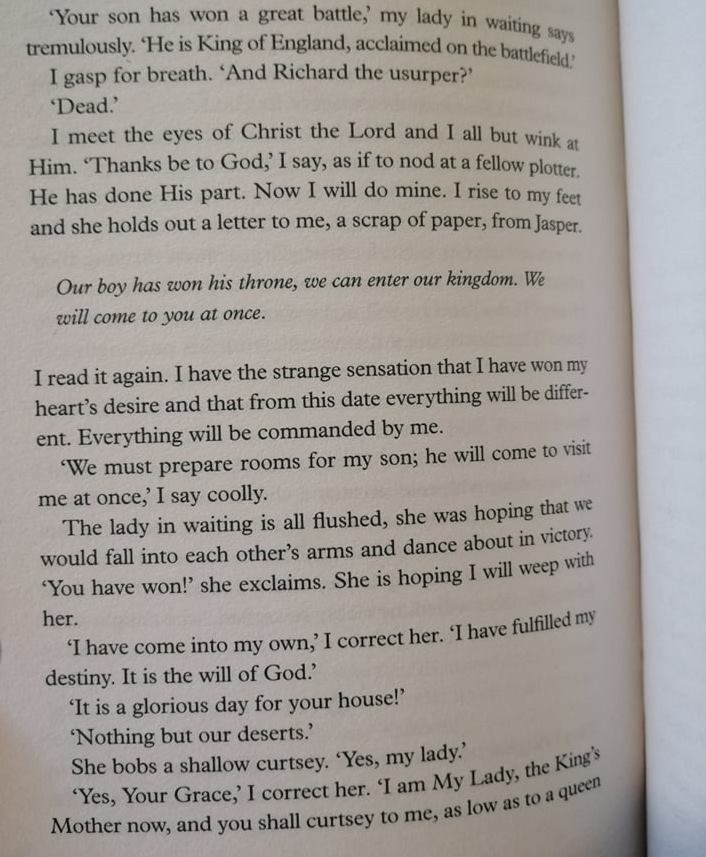
The Red Queen does not stop until her obsession is fulfilled
It is a riveting read, but not one that leaves positive conjectures at the end. Why would she sacrifice her dreams for justice or peace? She doesn’t see any reason for it and is unstoppable in her vision of greatness. The victory doesn’t even bring her much happiness because it includes disappointment and resentment.
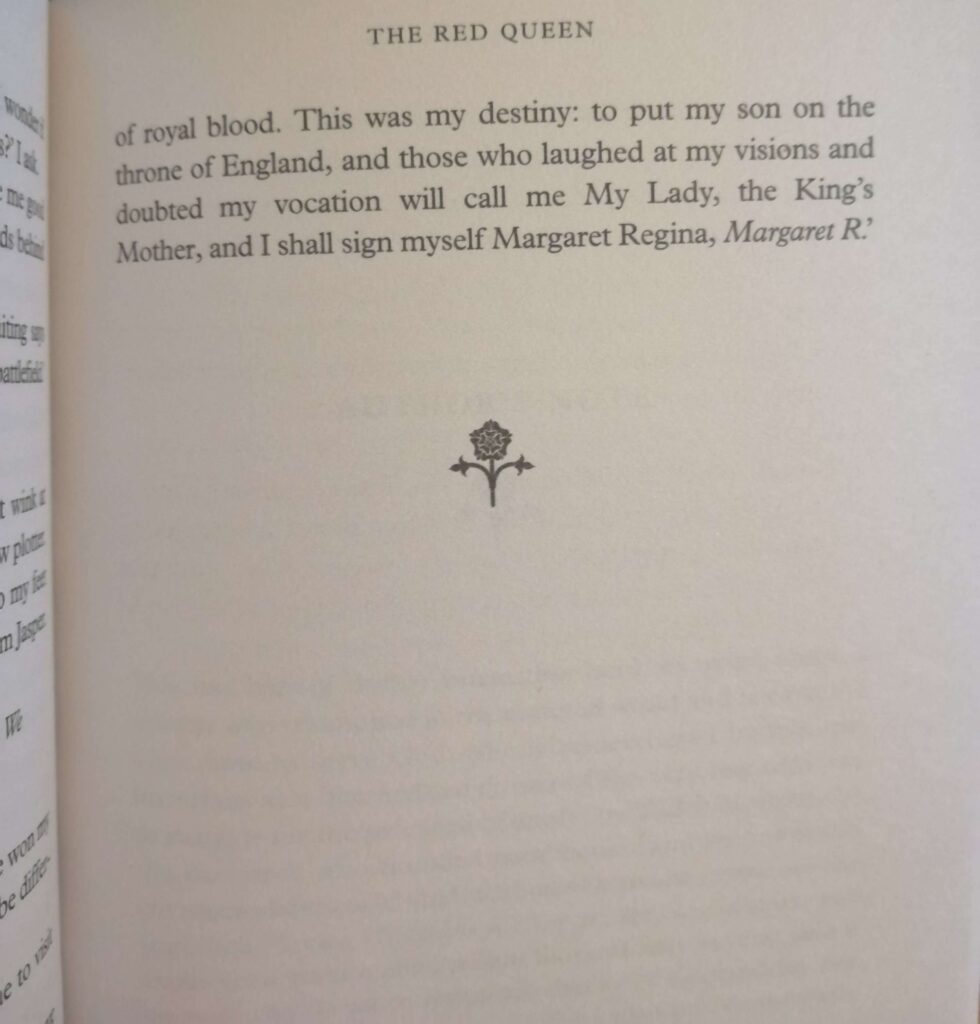
Shocked by success alike as by suffering, Margaret sees that the struggle she went through took so long that she can’t take pride in or enjoy her victory over her rivals.

